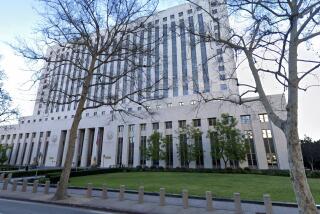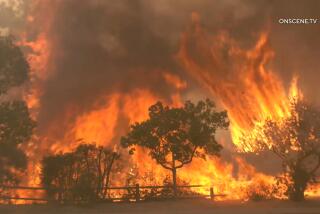Lancaster Balks at Expanding Study of Ground Cracks
The City Council in Lancaster, where extensive ground cracks were found earlier this year in a mostly undeveloped 10-square-mile area, has balked at spending $94,620 to look for similar problems in another 40 square miles of the city.
By a 4-1 vote, the council Monday night tabled a staff recommendation that the city hire Geolabs-Westlake Village, the same consulting firm that conducted the prior study and had urged further investigation after finding that the cracks appeared to be spread over a wider area.
Councilman Arnie Rodio, speaking for the majority, said he was concerned about the cost, citing a tight budget because of the recession. He said the council might reconsider the proposal, which was tabled indefinitely, later this year.
Councilman George Root, who favored the expanded study, accused his colleagues of deliberately trying to remain ignorant of the scope of the problem to avoid creating problems for developers who may own cracked parcels.
Scientists believe that the fissures are the result of sinking ground-water levels due to municipal use and irrigation, causing the earth to sink in the Antelope Valley, the southwestern corner of the Mojave Desert.
The largest cracks found in Lancaster were up to 700 feet long and 1 foot wide. Larger cracks were found at Edwards Air Force Base, northeast of the city in the dry lake bed used as a landing site for experimental aircraft and space shuttles.
Many development projects are pending on the land proposed for the expanded study. City planners have warned that they might not approve projects unless the City Council makes some effort to identify ground problems and require remedies. The council could authorize construction of projects even without the planners’ OK.
Planners have also warned that the city could face lawsuits if it fails to conduct the study and allows the building of homes or businesses that are subsequently damaged by sinking earth.
The $94,620 survey recommended by city planners was just a small part of a broader $1-million investigation proposed by Geolabs-Westlake Village, which would have surveyed 80 square miles and explored possible remedies.
More to Read
Sign up for Essential California
The most important California stories and recommendations in your inbox every morning.
You may occasionally receive promotional content from the Los Angeles Times.






